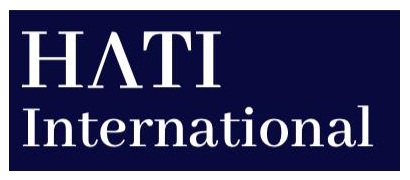Big Data in Healthcare – Challenges and Opportunities
The healthcare industry has undergone a drastic transformation today with the use of technologies such as big data and advanced analytics. These technologies have revealed new possibilities with data-driven insights using disparate sources of information. The adoption of big data has led to improved operational efficiency in healthcare management, reduction in healthcare costs, higher quality healthcare along with better patientcare and outcomes for the healthcare industry.
A few years back, ‘The Centers For Disease Control and Prevention’ agency launched its pilot big data program called BioMosaic which has been successfully used as a tool for predicting the spread of Ebola and other epidemics. This tool combines population data, key health statistics along with population migration in real time which is useful in tracking different kinds of epidemics. BioMosaic has been widely used for forecasting, testing and targeting diseases to control any outbreaks and provide useful recommendations for their prevention in the future.
Let us take a look at the opportunities presented by big data analytics for the healthcare industry and also have a look at the challenges faced by healthcare organizations in their big data adoption.
How is Big Data Useful in The Healthcare Industry?
Here are some of the key areas where big data can help the healthcare systems –
Identifying patients who are at high risk
Patients with a risk of chronic diseases form a major percentage of the patient population. It is imperative for hospitals to identify them early and provide them aggressive treatment regimens to ensure that their conditions remain stable and do not deteriorate. Using advanced analytical tools, doctors can identify factors that influence risk and based on that, define the treatment and intervention plan accordingly.
Eliminating medication errors
Choosing wrong medication can be detrimental to the health of the patients and is one of the major causes of death among patients. Big data can be useful in analyzing the records of the patients with prescribed medications and help in reducing the error rates by flagging any possible errors, which are out of the norm.
Avoid frauds and security breaches
Healthcare related data breaches can prove to be expensive as well as life-threatening as hackers can easily get access to sensitive medical information related to the patients. As per recent studies, the healthcare industry has 200% more chances of facing data breaches as their data is extremely valuable. In view of this, healthcare companies using big data have been able to avoid fraud and security breaches and threats. The Centers for Medicare and Medicaid services used data analytics and were able to avoid a whopping $210 million in fraud activities in one year.
What kind of opportunities does Big data offer to the healthcare industry?
Provides remote monitoring capabilities
Big data analytics provides ample opportunities where remote monitoring possibilities through biometric devices, mobile data collection apps can play a key role for monitoring blood pressure and glucose levels, medications and activity levels among patients. These data streams may be used efficiently by care providers to manage chronically ill patients and such remote monitoring assistance can help them in boosting their engagement levels and offer quality care for patients at home or in hospitals.
Reduce patient readmissions and unnecessary complications
With big data and analytics, it becomes possible to reduce readmission rates of patients in the hospitals. The use of predictive analysis can help in classifying discharged patients depending on their risk of readmission. Big data analytics can also play a valuable role in monitoring the effectiveness of different kinds of interventions done for readmissions. In addition, big data techniques may be deployed for reducing chances of complications when patients may be staying in the hospital, especially during infections.
Better health management of population
Healthcare systems are increasingly implementing new programs for managing the health of the population and to boost patient engagement. By using analytics in health management, healthcare givers are able to identify patients who are at high risk among the target population by effective reviewing of problems, diagnosis, and analysis of lab results through EMR.
Support for patient-centric medical homes
Many healthcare providers are relying on analytics and databases for providing patient-centric medical homes. For example – By analyzing EMR data, it’s possible to target diabetic patients who may have a high level of HbA1c levels and put them for intervention by care providers with regular monitoring.
Key Big Data Challenges for The Healthcare Sector
Big data analytics in healthcare involves many challenges of different kinds concerning data integrity, security, analysis and presentation of data. Here are of the topmost challenges faced by healthcare providers using big data.
Issues with data capture, cleaning, and storage
Capturing data is one of the foremost challenges for healthcare companies due to lack of efficient data governance practices. For data usage to be more effective, it has to be clean, accurate, formatted properly so that it can be used across multiple healthcare platforms. Data cleaning is also an equally vital part of the process and most healthcare companies ignore this vital aspect, which results in less accurate, inconsistent and irrelevant data. Yet another challenge is managing data storage that involves high cost along with security and performance issues which need to be tackled by the IT department.
Data security issues
Data security is one of the topmost concerns for most of the healthcare providers with frequent hackings, security breaches that need to be tackled on a regular basis. Right from malware, phishing attacks, data thefts-healthcare data is vulnerable in many ways which pose additional risks for healthcare companies as they need to find out effective mechanisms to safeguard critical data.
Difficulty in sharing patient data
Most of the patient records these days are stored in a centralized database for quick and easy access, but the real challenge lies when this data has to be shared among outside medical practitioners. Although EHR data within the healthcare environment may follow common standards, but pharmacies, external healthcare providers may use different systems which makes sharing and integrating medical records a cumbersome task.
Gap between administrative and clinical systems
The medical records maintained by the healthcare providers and the billing department on the hospital floor need to be reflected accurately while making insurance claims. But often, there is a lack of integration between the administrative and clinical systems with mismatch among data management systems and a variation exists among treatment codes and care given to the patients.
Data privacy and regulations issue
The healthcare industry has to be very careful while dealing with extremely sensitive data and also patient data which is valuable. Leakage of information can not only prove costly to the healthcare companies, but it’s also illegal to share them without prior permission. HIPAA, which was passed in 1996, was formed to protect patient privacy and safeguard sensitive data. Hence, the challenge for healthcare providers lies in meeting HIPAA compliance in technology with data encryption, data masking, and other stringent methods of data protection that allow limited data access to others.
Conclusion
The health care system is slowly replacing legacy information system to meet the challenges and needs of the modern day health requirements of patients to provide assisted, high-quality and value-based care using advanced technologies such as big data and analytics. The future certainly looks very bright and we are excited to be a part of it!




